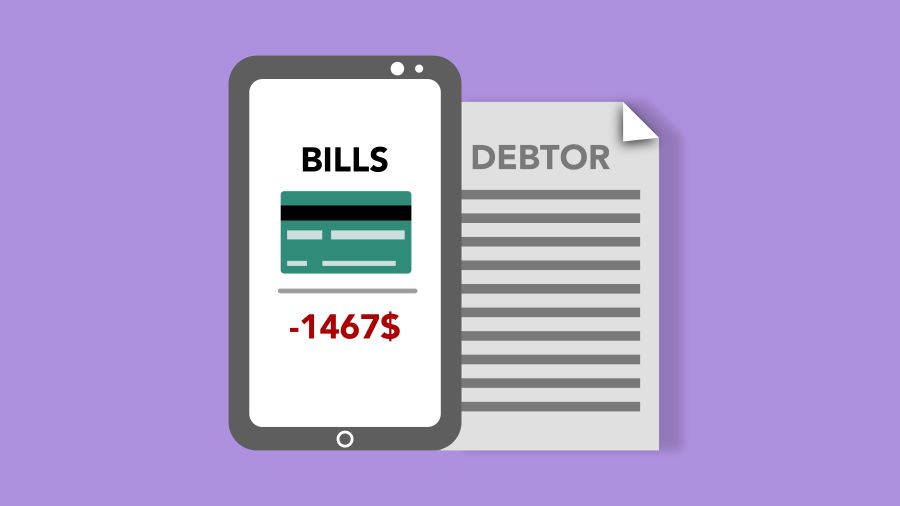Missing credit card payments can have significant repercussions on your financial health. Understanding the impact of missing payments is crucial for maintaining good financial discipline and avoiding long-term consequences.
Here, we dive into the various effects of missing credit card payments and provide actionable tips on how to manage your credit effectively.
Immediate Financial Consequences
Late Fees and Penalties: One of the most immediate impacts of missing a credit card payment is the imposition of late fees. Indian banks and financial institutions typically charge late payment fees ranging from ₹100 to ₹1,000 or more, depending on the outstanding balance.
Interest Rate Hike: When you miss a payment, the interest rate on your outstanding balance can increase significantly. In India, credit card interest rates can go as high as 36% per annum. Missing payments often lead to higher interest accrual on the outstanding balance, making it even harder to pay off the debt.
Read more: How to get a credit card without a CIBIL score
Impact on Credit Score
Credit Score Decline: Your credit score is a critical factor in your financial health. Missing credit card payments can lead to a significant drop in your credit score. The credit bureaus in India, such as CIBIL, Equifax, and Experian, take into account your payment history when calculating your credit score. Consistent late payments can lead to a lower credit score, affecting your ability to secure loans and other forms of credit in the future.
Long-term Credit Report Impact: Late payments are recorded on your credit report and can remain there for up to seven years. This can negatively influence lenders’ perception of your creditworthiness and impact your financial opportunities for years to come.
Collection Actions
Collection Calls: If you miss multiple payments, credit card companies may start calling to remind you of your overdue payments. Frequent collection calls can be stressful and inconvenient.
Legal Actions: Persistent non-payment can lead to more severe consequences, including legal actions. Banks and credit card issuers may file lawsuits to recover the outstanding amount, leading to court proceedings and additional legal costs.
Reduction in Credit Limit
Lowered Credit Limit: Missing payments can prompt your credit card issuer to reduce your credit limit. A reduced credit limit can increase your credit utilisation ratio (the amount of credit you’re using compared to your total available credit), further lowering your credit score and limiting your financial flexibility.
Read more: Get a credit card with no credit history
Difficulty in Securing Future Credit
Loan and Credit Card Rejections: A history of missed payments makes it challenging to secure future loans or credit cards. Lenders view a poor payment history as a sign of credit risk, leading to higher interest rates or outright rejections for new credit applications.
Higher Interest Rates: Even if you are approved for credit, expect to face higher interest rates and less favourable terms due to your perceived risk as a borrower.
Tips for Managing Credit Card Payments
- Set Up Automatic Payments: Automate your credit card payments to ensure you never miss a due date. Most banks offer this service, which can be set up through internet banking or mobile apps.
- Maintain an Emergency Fund: Having a financial cushion can help you manage unexpected expenses without missing your credit card payments.
- Use Payment Reminders: Set reminders on your phone or through email notifications to alert you a few days before your payment due date.
- Create a Budget: Track your income and expenses to ensure you’re living within your means. Allocate a portion of your budget specifically for credit card payments.
- Pay More Than the Minimum: Whenever possible, pay more than the minimum required payment. This reduces your principal balance faster and decreases the amount of interest you accrue.
- Negotiate with Your Issuer: If you’re facing financial difficulties, communicate with your credit card issuer. They might offer solutions like a payment plan or temporary interest rate reduction.
Missing credit card payments can have severe and far-reaching consequences in India, affecting everything from your credit score to your ability to secure future loans. It is essential to understand these impacts and take proactive steps to manage your credit responsibly.

FAQs
- How does missing a credit card payment affect my credit score in India?
Missing a credit card payment can significantly lower your credit score, as payment history is a major factor in credit scoring models used by CIBIL, Equifax, and Experian in India.
- What are the immediate penalties for missing a credit card payment?
Immediate penalties include late payment fees, increased interest rates on the outstanding balance, and potential collection calls from your credit card issuer.
- How long do late payments stay on my credit report?
Late payments can remain on your credit report for up to seven years, affecting your creditworthiness during this period.
- Can I negotiate with my credit card issuer if I miss a payment?
Yes, many issuers are willing to work with you if you are facing financial difficulties. They may offer payment plans, interest rate reductions, or waive late fees in some cases.
- What steps can I take to avoid missing credit card payments?
To avoid missing payments, set up automatic payments, create a budget, use payment reminders, maintain an emergency fund, and aim to pay more than the minimum payment whenever possible.


 Get App
Get App  Airtel Store
Airtel Store  Login
Login 


